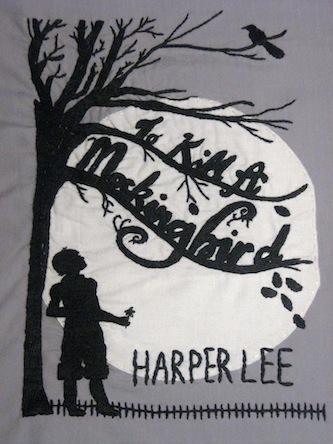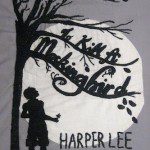Harper Lee of ‘To Kill a Mockingbird’ and Southern Literature
By • February 24, 2016 0 5347

When the news came that Harper Lee, the author of the enduring American classic, “To Kill a Mockingbird,” had died in an assisted living home in Monroeville, Alabama, it excited talk and discussion about all sorts of things, including such topics as the impact of one-hit literary wonders, Southern culture and literature, the importance of the lives of authors and the fate and future of books and particularly novels themselves.
Lee’s death on Feb. 19 came not too long after the somewhat mysterious and controversial publication of what was probably an unpolished and ultimately unwanted sequel to “To Kill a Mockingbird,” in which the heroic, gentle figure of the gentlemanly small town Southern lawyer Atticus Finch, who stood up to defend a wrongly accused black man in a segregation-seared Jim Crow South, is seen years later as a somewhat embittered segregationist.
There’s little doubt that this development in the oddly-titled book “Go Set a Watchman” disappointed the huge multi-generational number of fans who saw in Finch a role model, an affirmation of American hopes and values such as fairness, moral courage, even in the face of ultimate failure, the good, strong, brave man as an example to others, as seen through the coming-of-age eyes of his young daughter Scout.
The mixed reviews and even expressions of outrage did not prevent “Go Set a Watchman” from becoming a best-seller, just as its predecessor had been, although without the impact and the enduring print runs that have made “To Kill a Mockingbird” a literary phenomena.
That book, published in 1960, at the raw and powerful beginnings of the civil right movement in the south (Martin Luther King, Jr.’s “I Have a Dream” speech was only three years away). The novel, written with a gentle style that had its poetic elements, begat a film starring a glasses-wearing, slow-speaking Gregory Peck as Atticus Finch — and you could not have asked for a more embodying actor to play the part. Peck’s sometimes awkward manner made him a heroic figure on the screen, and in his white jacket, glasses and carefully worded speaking, he pinned the liberal and human values of the book to the screen.
Both the book and the film—the book continued and continues to be a requirement in schools ever since and the film won an Oscar for Peck—had an impact on public acceptance of the rightness of many aspects of the civil rights struggles at that time. Whether this came from reading Lee’s words or seeing the film is hard to measure. As there are millions of people who insist they were at Woodstock, so there are probably millions of people who believe they read “To Kill a Mockingbird” — when they “only” saw the movie.
The success of the book and film excited a good deal of interest in Lee herself, a woman who was born in the same little Alabama town in which she died. She had a literary bent and interest and literary friends — most notably Truman Capote, who advised her and whom, in turn, she helped research his best-selling “In Cold Blood.” Lee gained a reputation for reclusiveness because any conversations with her in print were rare, and she gave few interviews. Indeed, after “Mockingbird”, which won a Pulitzer Prize for fiction, she produced nothing much in terms of a follow-up to the influential book.
“Mockingbird” is one of those books that seems like a solitary flame that burned and at the same time destroyed the gift from which it came. There are plenty of those in the annals of literature, both high-brow and pop. It is also an example of a product of Southern culture , certainly in literature, which is so haunted by its past. Because the book became something beyond its own reputation in terms of its impact in schools and culture, it still has something to say about race, about books themselves and the lives of its authors.
Lots of writers have been one-book wonders. Critics point to the Bronte sisters, Emily and Charlotte, and their forever feverish novels of obsessive love “Wuthering Heights” and “Jane Eyre,” respectively, but in fact, they did write other books, which were not successful. (Emily died at age 30.) J.D. Salinger bears a resemblance to Lee in the sense that “The Catcher in the Rye” was and probably remains a favorite of disaffected adolescents. Salinger himself was a thorough recluse around whom intense curiosity never abated, even though he continued to write slim volumes about the Glass family.
“Catch 22” was such a popular war novel (actually anti-war) that the title itself became a description of bureaucratic cruelty (that’s some catch, that catch 22) for its author Joseph Heller, who wrote other, very fine novels, but none that had such an impact. The same was true for Mario Puzo, an aspiring writer of failed literary novels, who wrote “The Godfather” and was set for life. He wrote more novels, but never anything that matched the success of the mafia book and films that came after. Margaret Mitchell, a true lady of the South, won a Pulitzer Prize for “Gone With the Wind,” saw the movie become a legend and never accomplished much of anything else. The great American novel, as always, remains not just a goal but a curse, while James Patterson laughs all the way to all the banks.
Lee was a Southerner in the truest sense of the word in the sense that she inhaled small town Southern life, with all its richness and terrible ghosts, much of which found its way into “To Kill a Mockingbird.” She is also part of a literary Southern tradition that no doubt came from living in a geography, where history is in the DNA — and nothing is black and white, and everything is black and white.
Not all Southern literature, or art, or architecture or popular music is about race or injustice or climate, but some part of living in it is. Southern artists have responded to it on some level or another, beginning most foremost with Nobel Prize-winning novelist William Faulkner, whose fiction is a kind of and sometimes difficult-to-decipher blueprint of the geography. They vary — whether in the art of people like William Christenberry, for instance, or William R. Dunlap, in the poetry of Allan Tate and his famous (or not) “Ode to the Confederate Dead” or the stories of Alabama native Zora Neale Hurston. Compare and contrast Thomas (not Tom) Wolfe, whose soul burst into his profusive, all engaging-novels (like “Look Homeward Angel), out of Asheville, North Carolina, or novelist William Styron, from Hilton Village, Virginia, two of whose major novels, “Lie Down in Darkness” and the controversial “The Confessions of Nat Turner,” were Southern to their core.
Faulkner addressed the larger issues of the book, the novel, fiction itself, which echo mightily in the digital world, where the death of books and literature is often predicted. In his Nobel Prize acceptance speech, he said, “Man is immortal, not because he alone among creatures has an inexhaustible voice, but because he has a soul, a spirit capable of compassion and sacrifice and endurance. The poet’s, the writer’s, duty is to write about these things. It is his privilege to help man endure by lifting his heart, by reminding him of the courage and honor and hope and pride and compassion and pity and sacrifice which have been the glory of his past.”
It’s fair to say that Lee with her “To Kill a Mockingbird” fulfilled both duty and privilege — and more.
- Book cover of “To Kill a Mockingbird.”



